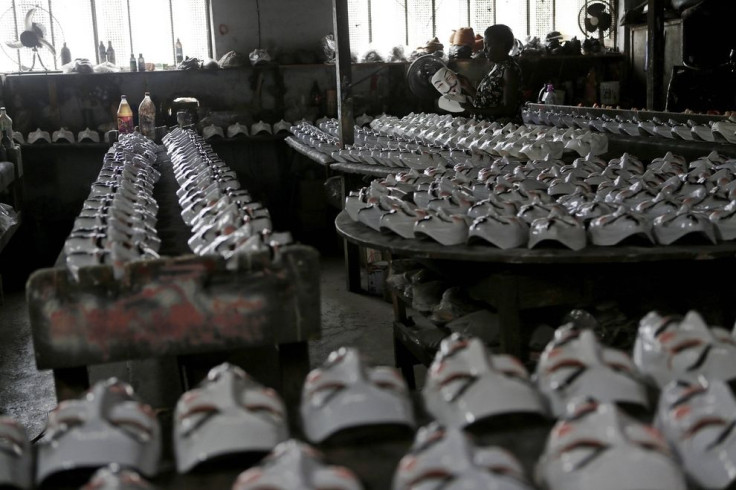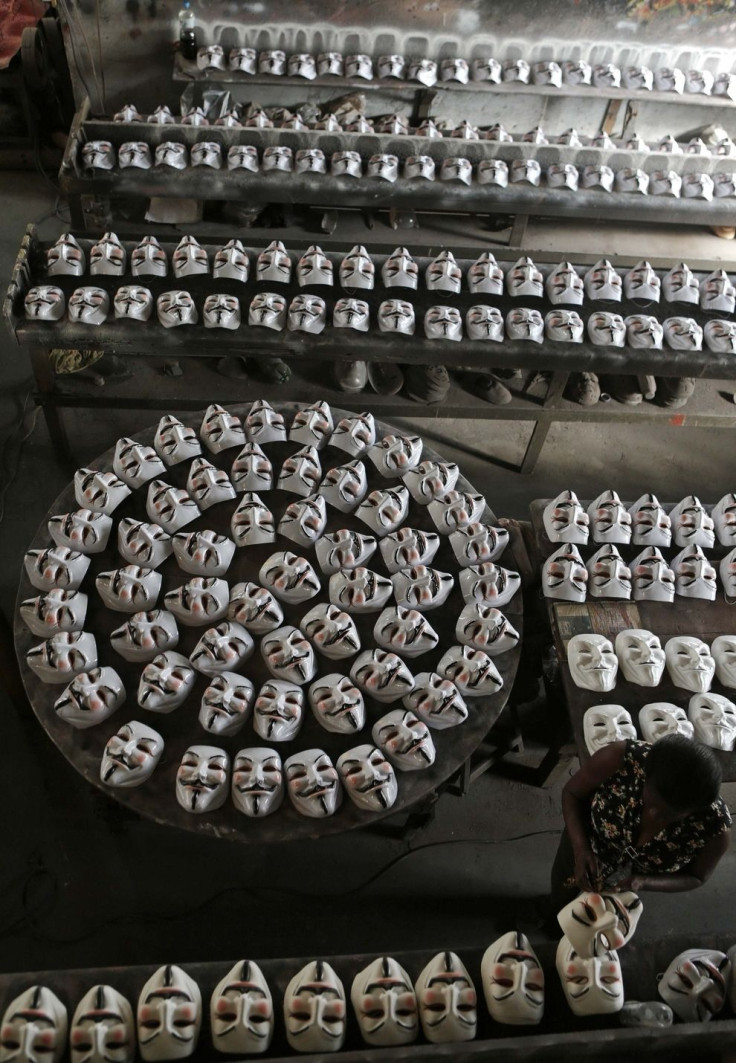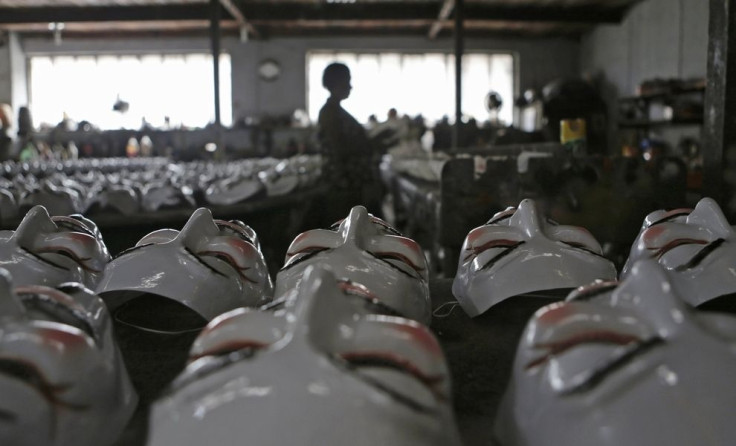'Anonymous Masks' Photo Stirs Controversy On Guy Fawkes Day

Today is the biggest day of the year for members of the Anonymous collective, as it is Guy Fawkes Day -- a celebration of the man who inspired the eponymous masks of the movement -- as well as the date of the Million Mask March, a worldwide protest aligned with the leaderless group.
But a photo (see above) that appeared on Reddit's front page Tuesday morning has generated a controversy that shows the reality behind the Guy Fawkes masks and the fact that at least some of them appear to be manufactured in what appears to be a third-world sweatshop.
It's a compelling image, as the amorphous Anonymous collective styles itself as being opposed to all manner of social, political and economic misdeeds, and the idea that it is created by sweatshop workers strikes to the heart of that message.

And it emerged at a pertinent moment, as Guy Fawkes mask-wearing protesters across the world took part in the "Million Mask March," aimed at uniting the group and others such as the Pirate Party and Occupy movement as a force for good in the world.
It turns out that the photo was one of many taken at a factory in São Gonçalo, Brazil, in July by Reuters, in a series of pictures that illustrates the conditions under which Guy Fawkes masks are made. The series shows hundreds of "Anonymous masks" making their way along assembly lines, while laborers work to ensure they are manufactured properly. The photos do not depict horrendous work conditions by any means, but it's a sign of the times that props that are supposed to be a symbol of the resistance are actually made in South American factories by workers who themselves are likely suffering under the negative impacts of the globalized capitalistic system that Anonymous often rails against.
As Redditor sayheykid24 put it, "How do people think the masks were made? Did they think they were lovingly handcrafted by anti-corporate artisans, or something?"

Guy "Guido" Fawkes has long been the public face of the so-called Gunpowder Plot, a failed 1605 attempt to assassinate England's King James I in hopes of restoring a Catholic monarchy.
Fawkes and his fellow plotters allegedly planned to carry out an elaborate plot to tunnel their way into the House of Lords, but authorities acting on an anonymous found Fawkes in a room below Westminster Palace with a massive store of gunpowder on Nov. 5, 1605, foiling his and his 12 co-conspirators' plan.
He went on to be tortured and interrogated until he admitted his intentions, after which he was set to be hanged on Jan. 31, but managed to kill himself to avoid that final indignity. Every year since the plot was ended, Guy Fawkes Day has been celebrated in England as the day the King avoided assassination, and he is burned in effigy, often on a bonfire, a tradition that has led to the holiday sometimes being referred to as Bonfire Day.

But a certain segment of the population has long looked to Fawkes as a brave revolutionary, especially since the publishing of William Harrison Ainsworth's 1841 book "Guy Fawkes; or, The Gunpowder Treason," which depicted Fawkes as a hero of sorts, which led to his canonization as a sympathetic figure in the eyes of many who disagreed with the ruling class and wanted to see it overthrown or reformed.
With the arrival of the "V for Vendetta" comic books and film, which featured the arrival of the modern, black-and-white "Guy Fawkes mask," Fawkes took on a new life in popular culture, and the Anonymous movement eventually adopted the mask as one of its defining symbols, a reference to the anti-establishment and anti-authoritarian tendencies of Fawkes, as well as a reminder of the group's ubiquitous anonymity.
© Copyright IBTimes 2025. All rights reserved.





















